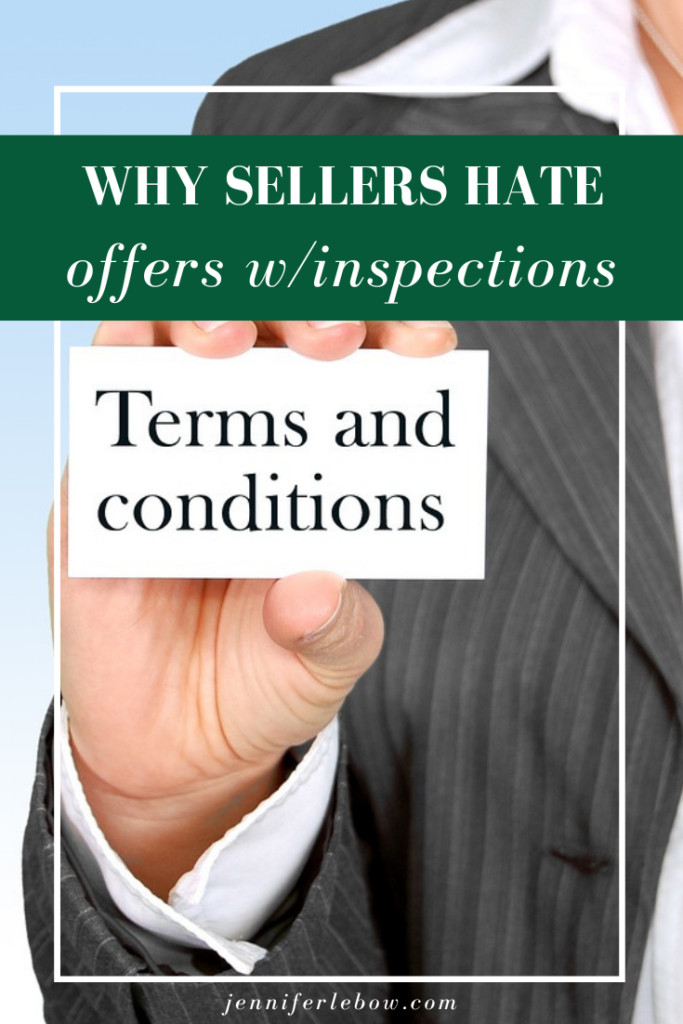
If you are in a competitive bid situation, your agent will probably discuss the option of waiving the home inspection. Most buyers are not comfortable agreeing to purchase a property without one. However, in our current market, if sellers have offers without an inspection contingency, they are much more likely to choose one of them. The the obvious reason is that the buyer could try to negotiate repairs or a credit or reduction in price, leaving the seller with more headache and lower net proceeds than expected based on the original offer. As a way to combat that worry, many buyers are adding language like, “Buyer to absorb up to first $15,000 worth of items discovered through inspections”. While thiat kind of caveat does, indeed, lessen the risk to the seller, it certainly doesn’t eliminate it.
The part of the picture that buyers often don’t focus enough on is the risk the seller faces of the deal falling through (versus just having a reduction in net proceeds in the event of a negotiation resulting from inspection issues). Remember that the home inspection contingency on a PA contract says that, if the buyer is not “satisfied” with the inspection, she can terminate with return of deposit monies. Here’s why, especially in this market with lots of multiple bid situations, this ability for the buyer to get out of the transaction is such a big deal:
Consider a buyer who has been looking for a house for a year, has lost out on five bids and is feeling desperate. She puts a bid on a house that is higher than the others. It has an inspection contingency, but reflects the buyer absorbing the first $20,000 worth of issues. Unless she specifically relinquishes her right to terminate based on the “not satisfied” line in the contract, she could still back out. And here’s the part that most buyers don’t think about–why would that buyer want to back out? Remember how desperate she was because she’d been looking for so long? What if she realizes, after she wins the bid, that the house is ok, but far from perfect. She can still be looking at new properties that come on the market during her inspection periond and if she finds one she likes better, she may choose to terminate based on the inspection contingency language.
That scenario is what many sellers cite as the main reason they don’t want an offer with an inspection contingency–because if the deal falls apart, its is rare that the seller can find someone who will pay what some of the competing bids were when it first went under contract. People attach a stigma to a property that has gone under contract, had inspections and then goes back on the market. All of a sudden, its value is reduced in the opinion of the buying public. Sure, the listing agent would go back to the buyer agents who’d submitted the other offers, but some of those buyers may have since found something else and the ones that haven’t might well not offer as high a price.
So, if you are a buyer writing an offer for a property, carefully consider the risk/reward balance of including an inspection contingency. First, consider how likely the property is to have major issues (is it old? does it seem like it may not have had regular maintenance?). Then consider things from the seller’s perspective. How much risk does the structure of your offer put on the seller? It boils down to how badly you want the property and just how much risk you are willing to take to present an offer the seller will choose.
If you are relocating to the Philadelphia/Main Line area, please go to my blog page and search for posts using the relocation tag. Contact me to discuss your Philadelphia area relocation! jen@jenniferlebow.com/610 308-5973


Leave a Reply